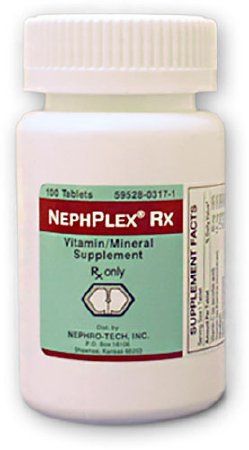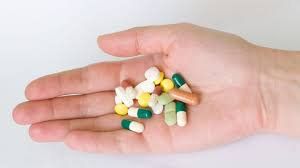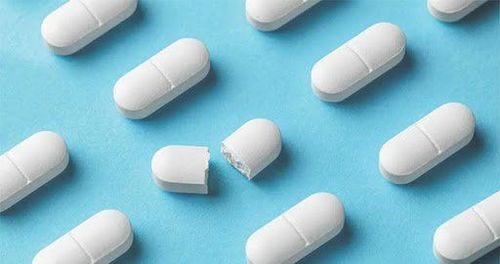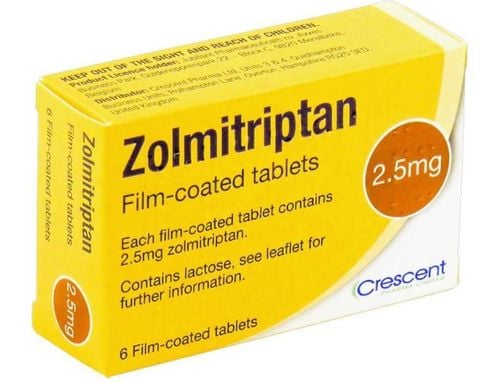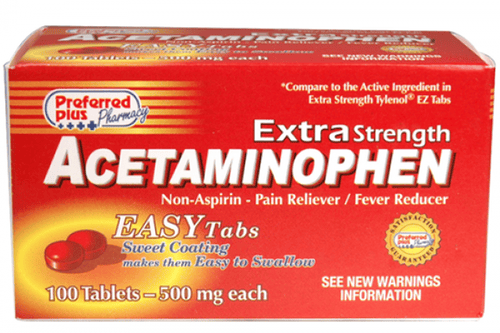This is an automatically translated article.
While everyone has specific stressors in their life, factors related to work pressure, money, health, and relationships tend to be the most common causes. Regular exercise, adequate sleep, and good nutrition are some of the best ways to combat stress, but certain vitamins and supplements can also be helpful in de-stressing.Stress can be acute or chronic and leads to fatigue, headaches, stomachaches and irritability or anger. Here are 7 stress-relieving supplements and vitamins.
1. Rhodiola rosea helps relieve stress
Rhodiola (Rhodiola rosea), is an herb that often grows in the cold mountains of Russia and Asia. It has long been known to be a natural, non-toxic herb that stimulates your body's stress response system to increase its resistance to stress.The adaptogenic properties of rhodiola are related to two of the herb's potent active components, rosavin and salidroside.
An 8-week study of 100 people with symptoms of chronic fatigue, such as poor sleep quality and impaired concentration and short-term memory, found that 400 supplementation mg of rhodiola extract per day improved symptoms after just 1 week. Symptoms continued to decrease throughout the study.
In another study of 118 people with stress-related burnout, taking 400mg of rhodiola extract daily for 12 weeks improved stress-related symptoms, including anxiety, exhaustion, and irritability glass.
Rhodiola is highly safe and well tolerated. It is an adaptogen herb that has been shown to help improve symptoms associated with chronic fatigue and stress exhaustion.
2. Melatonin helps relieve stress
Getting enough sleep also helps reduce stress. Stress is strongly associated with insomnia, a sleep disorder characterized by difficulty falling asleep or staying asleep, or both.That said, achieving adequate quality sleep may not be easy if you are under stress, which in turn may exacerbate stress severity.
Melatonin is a natural hormone that helps regulate your body's circadian rhythm, or sleep-wake cycle. Levels of this hormone increase in the evening to promote sleep and decrease in the morning to promote alertness.
In a review of 19 studies involving 1,683 people with primary sleep disorders, not caused by another medical condition, melatonin was found to shorten people's time to sleep, increasing the amount of time people fall asleep. total sleep time and improved overall sleep quality, compared with placebo.
Another review based on 7 studies involving 205 people investigated the effectiveness of melatonin in managing sleep disturbances secondary to another condition, such as stress or depression.
The review demonstrated that melatonin reduced the time these people fell asleep and increased total sleep time but did not significantly affect sleep quality.
Although melatonin is a natural hormone in the body, supplementing with melatonin does not affect how your body produces it. Melatonin supplements are available in dosages ranging from 0.3–10 mg. It is best to start with the lowest possible dose and gradually increase to a higher dose if needed.
Melatonin supplements can help you fall asleep faster and stay asleep longer if you're having trouble falling asleep related to stress.
While melatonin supplements can be purchased over-the-counter in the United States, in many other countries a doctor's prescription is required to obtain them.
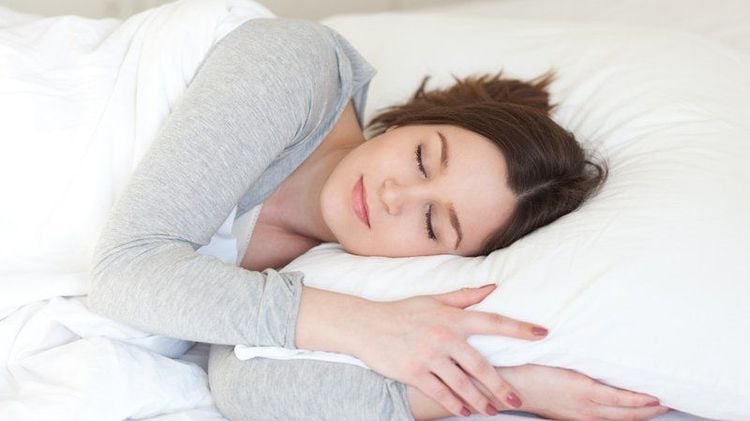
Ngủ đủ giấc cũng góp phần giúp làm xoa dịu căng thẳng
3. Ashwagandha relieves stress
Ashwagandha is an adaptogen herb native to India, it has been used in Indian Ayurveda, one of the oldest medicinal systems in the world.Ashwagandha is believed to be able to help enhance your body's resilience to physical and mental stress.
In a study on the stress-reducing effects of ashwagandha, researchers randomly selected 60 individuals with mild stress to receive either 240mg of a standard ashwagandha extract or a placebo per day for 60 days.
Ashwagandha supplementation was strongly associated with greater reductions in stress, anxiety, and depression than those taking a placebo. Ashwagandha has also been linked to a 23% reduction in cortisol levels, a stress hormone in the morning.
In another review based on five studies examining the effects of ashwagandha on anxiety and stress, people who supplemented with ashwagandha extract scored higher on tests measuring stress levels, worry and fatigue.
A study investigating the effectiveness and safety of ashwagandha supplementation in people with chronic stress noted that taking 600mg of ashwagandha for 60 days was safe and well tolerated.
Ashwagandha's adaptogenic properties have been shown to help reduce stress, anxiety and depression, as well as lower cortisol levels in the morning.
4. B vitamins have the effect of relieving stress
B-complex vitamins usually contain all eight of the B vitamins. These vitamins play an important role in metabolism by converting food into usable energy. In addition, B vitamins are also essential for heart and brain health.Food sources rich in B vitamins include whole grains, legumes, meat, eggs, dairy products and green vegetables.
Interestingly, high doses of B vitamins have been suggested to improve symptoms of stress, such as mood and energy levels, by reducing blood levels of the amino acid homocysteine. High blood levels of homocysteine have been linked to stress and an increased risk of several diseases, including heart disease, dementia, and colorectal cancer.
In a 12-week study of 60 people with work-related stress, those taking either form of a B-complex vitamin supplement experienced fewer symptoms of work-related stress later, including depression, anger, and fatigue, compared with non-users.
What's more, a review of 8 studies conducted with 1,292 people found that taking a multivitamin and mineral supplement improved several conditions of mood, including stress, anxiety, and depression. energy.
Although the supplement contains a number of other vitamins and minerals, the study's authors suggest that high-dose vitamin B supplements may be more effective at improving mood.
Another study observed similar results, showing that taking B vitamins as part of a multivitamin and mineral supplement regimen can improve mood and stress by reducing homocysteine levels.
However, it remains unclear whether people who already have low homocysteine levels experience the same effects when taking B-complex vitamins.
B-complex vitamin supplements are generally safe when taken within the recommended dosage range. However, they can still cause side effects such as nerve pain when taken in large amounts. They're water-soluble, so your body gets rid of the excess in your urine.
Eight B vitamins, collectively known as B complex vitamins, can improve mood and reduce stress by reducing homocysteine levels or maintaining healthy levels of this amino acid.

vitamin B liều cao đã được gợi ý để cải thiện các triệu chứng căng thẳng, xoa dịu căng thẳng
5. Glycine helps relieve stress
Glycine is an amino acid that your body uses to make proteins it needs. Studies show that glycine can increase your resistance to stress by helping you get a good night's sleep through its calming effects on your brain and lowering your body temperature. Lower body temperature will promote you to fall asleep more easily and help you sleep well during the night.In a study conducted on 15 people who complained about sleep quality, those who were given 3 grams of glycine before bed felt less tired and more alert the next day, compared to the group that took a placebo. medicine.
These effects did not make a difference in the time it took to fall asleep or the time it took to fall asleep, but it did show that glycine only improved sleep quality.
In another study, test subjects taking 3 grams of glycine before bed was shown to improve measures of sleep quality and performance on subsequent memory tasks. What's more, another small study found that taking 3 grams of glycine before bed reduced feelings of daytime sleepiness and fatigue after 3 days of sleep deprivation.
Glycine is well tolerated by the body, but taking 9 grams of it on an empty stomach before bedtime can cause mild stomach upset. Taking 3 grams of glycine did not cause any side effects.
Glycine's anti-stress effects have been proven to improve sleep quality as well as feelings of alertness and focus.
6. L-theanine has the effect of reducing stress
L-theanine is an amino acid most commonly found in tea leaves. It has been studied for its ability to promote relaxation and reduce stress without causing sedative effects.A result-based review of 21 studies conducted on nearly 68,000 people found that drinking green tea was associated with reduced anxiety, improved memory and attention span.
These effects are thought to be due to the synergistic effects of caffeine and L-theanine in tea, as each of its own components has a lesser impact. However, studies show that L-theanine alone can still help reduce stress.
One study found that supplementing with 200mg of L-theanine reduced stress symptoms, such as heart rate, in response to performing a mentally stressful job.
In another study of 34 people, drinking a beverage containing 200mg of L-theanine and other nutrients reduced levels of the hormone cortisol in response to a stressful job involving multitasking. . L-theanine is well-tolerated by the body and is safe when used in the right doses for relaxation, ranging from 200-600mg per day in capsule form.
L-theanine makes up only 1–2% of the dry weight of green tea leaves, which corresponds to 10–20 mg of L-theanine per commercially available tea bag. So drinking tea has no significant effect on stress. However, many people often drink tea to relax.
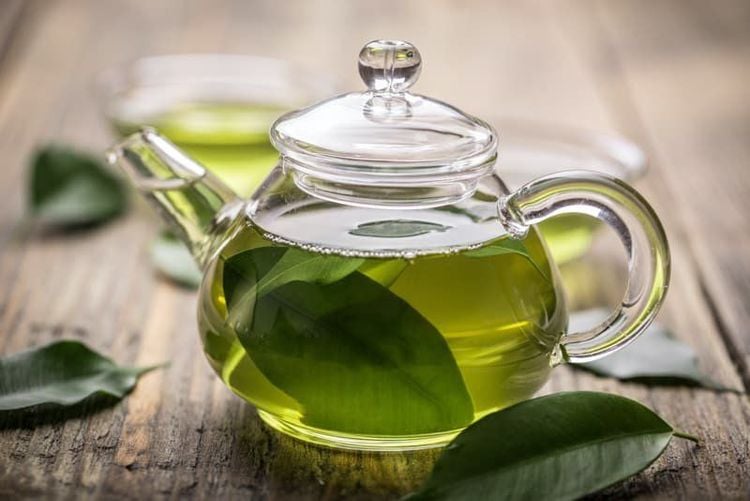
Uống trà xanh có liên quan đến việc giúp xoa dịu căng thẳng
7. Kava has a calming effect on stress
Kava is a tropical evergreen shrub found in the islands of the South Pacific. Traditionally enjoyed by the people of the Pacific islands, its roots are used to prepare a ceremonial beverage known as kava, or kava kava.Kava contains active ingredients called kavalactones, which have been studied for their stress-relieving properties. Kavalactones are thought to inhibit the breakdown of gamma-aminobutyric acid (GABA), which is a neurotransmitter that reduces the activity of your nervous system, producing a calming effect on the brain. This can help alleviate feelings of anxiety and stress.
A review based on the results of 11 studies conducted on 645 people found that kava extract was effective in reducing anxiety, a common response to stress. However, another review concluded that there was not enough evidence to confirm that kava has an anxiety-reducing effect.
Kava can be taken in tea, powder, capsule or liquid form. Its use appears to be safe when taken for 4 - 8 weeks in daily doses of 120 - 280mg of kavalactones.
Serious side effects of Kava products, such as liver damage, may be due to impurities in the product or the manufacturer used less valuable parts of the kava plant, such as leaves or stems, instead of roots.
Therefore, choose a reputable brand, whose products are independently tested by organizations like NSF International or Underwriters Laboratories (UL) when you want to supplement with kava.
If you have a need for consultation and examination at Vinmec Hospitals under the national health system, please book an appointment on the website (vinmec.com) for service.
Please dial HOTLINE for more information or register for an appointment HERE. Download MyVinmec app to make appointments faster and to manage your bookings easily.
Reference source: healthline.com



